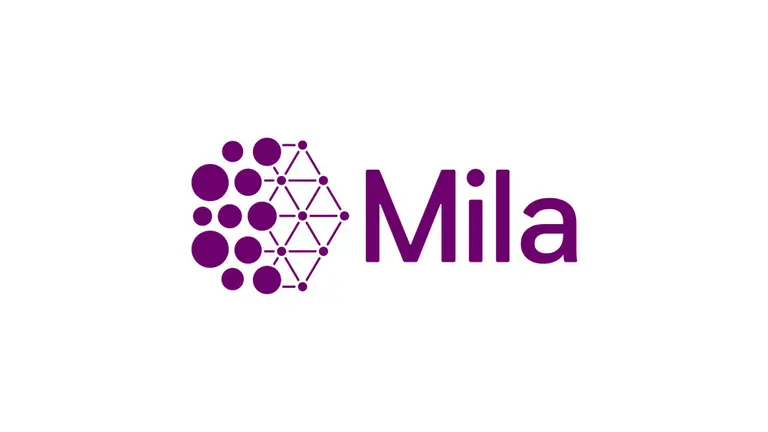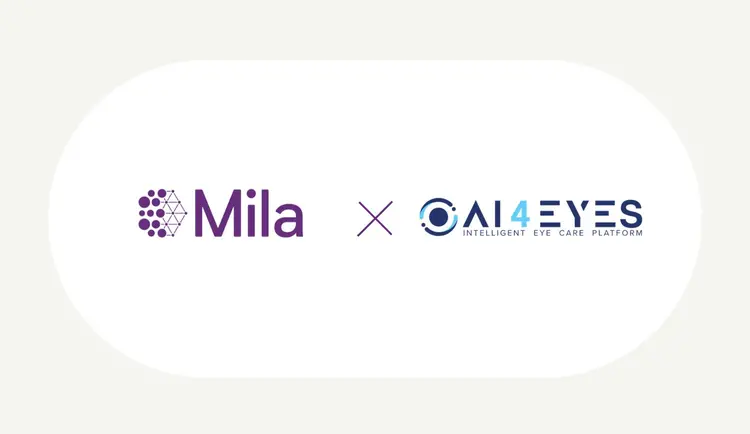
TORONTO – June 22, 2022 – Mila welcomes the federal government's commitment and vision as part of the launch of the second phase of the Pan-Canadian Artificial Intelligence Strategy, which will help confirm Canada's leadership in the sector.
Backed by an investment of more than $443 million committed in Budget 2021, this second phase of the Strategy will help attract world-class talent, increase capacity for cutting-edge research, and drive the commercialization and adoption of AI, while ensuring that ideas and knowledge developed in Canada continue to be implemented locally.
Quotes
“Canada is a leader in the responsible use of artificial intelligence. Since launching the Pan-Canadian AI Strategy five years ago, Canada has attracted and retained top researchers and invested hundreds of millions into commercialization. Our $443M investment in AI will accelerate our progress to help build a stronger economy, cleaner energy, better public health, and innovations across every industry. Further collaboration with our partners including CIFAR, Amii, Mila and the Vector Institute will enable Canada's continued leadership in advancing AI.”
– The Honourable François-Philippe Champagne, Minister of Innovation, Science and Industry
“Mila is proud to contribute to Canada's excellence in AI research and the attraction and retention of some of the world's top AI talent. We fundamentally believe that by applying the results of this research to the challenges of our time, such as the competitiveness of our companies, climate change, and health care, we can make a difference. This is especially true thanks to the work of pioneers, including our founder and Scientific Director Yoshua Bengio. The challenges of equity, diversity, and inclusion in AI and the conversations around the ethical use of technology are core to Mila's values. We are confident that through this strategy, we can take action to the next level and once again confirm Canada's leadership in this area.”
– Valérie Pisano, CEO, Mila
“CIFAR is pleased to continue to build upon the strong foundation of the first five years of the Pan-Canadian Artificial Intelligence Strategy, alongside our partners at Amii, Mila and the Vector Institute. We’re excited about this next phase as we continue to build Canada’s reputation as a global leader in research excellence and responsible AI to ensure that Canadian-led AI delivers positive social benefit and better economic opportunities for all.”
– Elissa Strome, Executive Director, Pan-Canadian AI Strategy, CIFAR
Related facts:
Budget 2021 funding for the second phase of the Pan-Canadian Artificial Intelligence Strategy includes:
- $60 million for Canada’s national AI institutes—Amii in Edmonton, Mila in Montréal and the Vector Institute in Toronto—to help translate AI research into commercial applications and grow the capacity of businesses to adopt these new technologies;
- $125 million for Canada’s Global Innovation Clusters to accelerate AI commercialization by supporting Canadian small and medium-sized enterprises, attracting private investment from other public and private sources, and developing made-in-Canada AI solutions;
- $8.6 million for the Standards Council of Canada to advance the development and adoption of standards and a conformity assessment program related to AI
- $160 million for CIFAR to continue programs to attract, retain and develop academic research talent and maintain centres of research, innovation and training at Canada’s national AI institutes.
- $48 million for CIFAR to renew and enhance its advanced research, training and knowledge mobilization programs.
- $40 million to provide dedicated computing capacity for AI researchers across Canada.
The first phase of the Pan-Canadian Artificial Intelligence Strategy was launched in 2017, in partnership with CIFAR, to build a strong Canadian talent pipeline and ecosystem, including the establishment of centres of research, innovation and training at the national AI institutes.
Since 2017, over 100 top researchers have been recruited as Canada CIFAR Artificial Intelligence Chairs, half of whom are international researchers drawn to Canada by the strategy and its investments. Moreover, the national AI institutes have trained over 1,500 graduate students and post-doctoral fellows. Many of these are international students who have come to Canada because of the recognized strengths of each institute.





